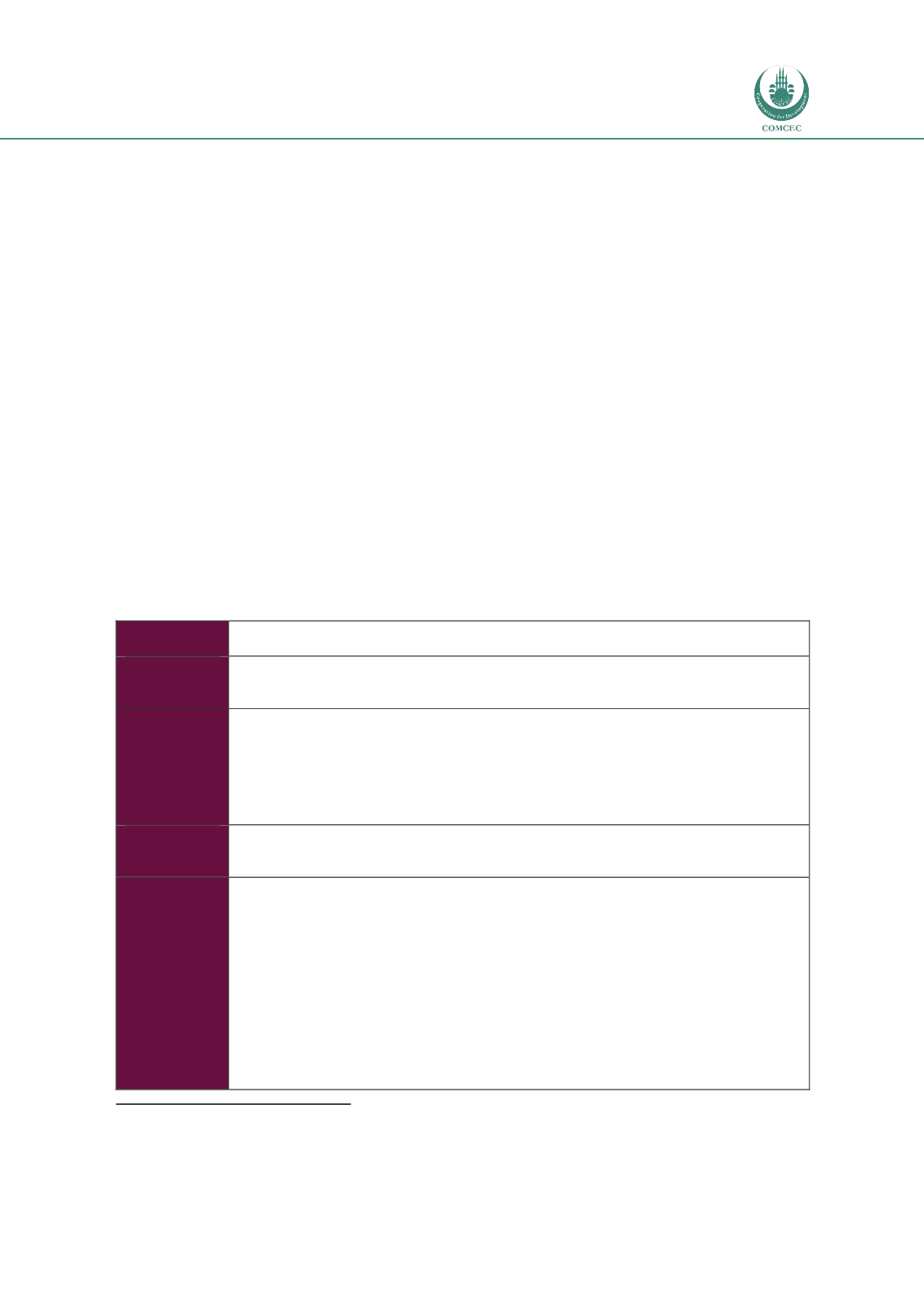

Improving Institutional Capacity:
Strengthening Farmer Organizations in the OIC Member Countries
53
funded civil society organizations and accepting in-kind contributions in the form of training,
material, and personnel.
The SPI also has adequate communication infrastructure, allowing it to engage effectively with
its membership. In the spheres of governance and accountability, the SPI performs relatively
well, by regularly engaging members through telephone, SMS, and email. Even more integral to
the FO is its annual meeting of the National Council, where the union’s operational activities
are communicated and members elect their leaders.
Challenges of the SPI
The main challenge the SPI faces is in the provision of technical assistance and other services,
especially physical infrastructure and financial services. This is due in part to its constrained
resource base (as mentioned, it lacks diversified revenue sources and members’ fees are only
US$1 per year). Another challenge is in one component of governance, as the five-year gap
between these General Assemblies means that members may not have a direct role in choosing
leadership and programmatic direction as frequently as they may like.
3.4.2.
The KPA
The KPA is an organization similar in type to the SPI but with a different history and slightly
broader membership base, as allied businesses and agrarian service providers are also
included in the membership. Characteristics are shown in the following table.
Table 17: Summary of the KPA
78
Type
National-scale; federation
Mixed gender; predominately smallholder
Origin
Established on September 24, 1994, as a consortium of women, farmer, and NGO
organizations to promote agrarian reform in Indonesia and achieve justice and welfare
for poor and marginalized rural people.
Purpose
Views itself primarily as an advocacy body that works toward a fair agrarian system in
Indonesia, characterized by the following goals:
Equality of allocation of agrarian resources to Indonesian rural folk
Assurance of ownership, possession and use of agrarian resources for peasants,
fishermen and indigenous peoples
Prosperity of poor rural communities in Indonesia
Footprint
Consists of 120 farmer organizations, with regional representation in 23 provinces across
Indonesia including: Java (West, Central and East), Sulawesi (Central and South), West
Kalimantan, Bali, Sumatra, Bengkulu, Jambi , Papua and Lampung
Service
provision
Provides the following services for members:
Advocates on agrarian reform and land use policy, to ensure land tenure security for
its members
Disseminates information on ecologically sustainable production
Provides legal and paralegal services to farmers facing evictions or legal challenges to
their land ownership or tenure
Links farmers and FOs to input providers and financial service providers and other
related organizations
Provides training programmes such as ‘
Advanced Villages for Agrarian Reform’
or
‘Damara’, which aims to create integrated collective farming units and joint business
entities at a local and community level
Provides training on the development of co-operative and peasant enterprise, with a
78
This table is based on interviews with KPA leadership in Indonesia in October 2014

















